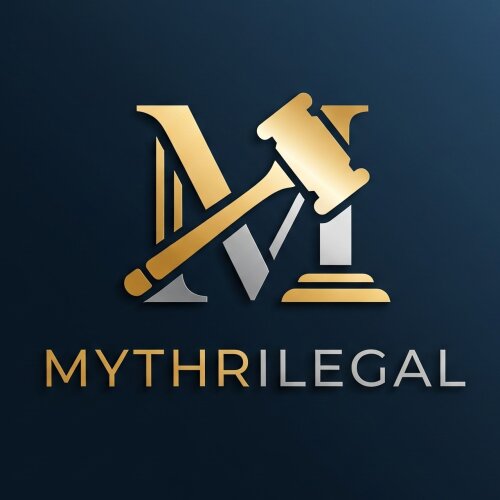Best Debt & Collection Lawyers in Hyderabad
Share your needs with us, get contacted by law firms.
Free. Takes 2 min.
List of the best lawyers in Hyderabad, India
About Debt & Collection Law in Hyderabad, India
The field of Debt & Collection Law in Hyderabad, India, revolves around legal issues concerning lending and recovery of debts. Laws are in place to protect both lenders and borrowers, ensuring that all parties fulfill their obligations in a fair and legal manner. The overall function of debt collection law in India is regulated by multiple legislations, including the Recovery of Debts Due to Banks and Financial Institutions Act 1993, The Securitization and Reconstruction of Financial Assets and Enforcement of Security Interest Act 2002 (SARFAESI), the Indian Contract Act 1872, and the Companies Act 2013.
Why You May Need a Lawyer
Legal assistance can be needed in various scenarios relating to Debt & Collection. If you are a borrower facing harassment from lenders or debt collectors, or if you are being sued for a debt, an experienced lawyer can help defend your rights. If you are a lender, you may need help with legal issues involving default, non-payment, or bankruptcy. Also, ensuring legal compliance in the process of debt recovery requires professional legal advice due to the complexity of the laws and regulations in India.
Local Laws Overview
The main law governing Debt & Collection in Hyderabad is the Indian Contract Act, 1872 which provides the framework for contracts in India. According to this law, parties involved in a contract willingly and knowingly agree to the terms and conditions, and should any of these be breached, the injured party is entitled to seek damages. Additionally, laws such as the Recovery of Debts Due to Banks and Financial Institutions Act 1993 and the SARFAESI Act 2002 play an essential role in debt recovery processes by providing faster debt recovery mechanisms to financial institutions and banks.
Frequently Asked Questions
Where can I lodge a complaint against a lender or debt collector who is harassing me?
You can lodge a complaint with the Reserve Bank of India (RBI) or the Banking Ombudsman.
Can a lender take possession of my property without a court judgment?
Under the SARFAESI Act, banks and financial institutions are allowed to enforce security interests and recover debts without the intervention of a court, however, the provision is subject to certain conditions.
What happens if I can't repay my debts?
If you fail to repay your debts, the lender may take legal action against you. This could include taking possession of your assets or forcing bankruptcy proceedings. However, these are serious actions that could cause long-lasting damage to your credit score and financial future.
Can I negotiate with a lender about how much I owe?
Yes, you may negotiate with the lender to reduce your debt or modify the repayment terms. A lawyer can be extremely helpful in this negotiation process.
What are my rights as a borrower during the debt collection process?
As a borrower, you have the right to be treated with dignity, not to be harassed or threatened by the lender or debt collectors, and not to have your financial information disclosed without your consent.
Additional Resources
For more information, you can visit the official website of the Reserve Bank of India (RBI) or the Banking Ombudsman. The National Legal Services Authority (NALSA) provides free legal services to the eligible persons under the Legal Services Authorities Act 1987.
Next Steps
You should consult with a lawyer who specializes in Debt & Collection Law in Hyderabad, India. They can provide you with personalized advice based on your situation. Be sure to gather any documents or evidence related to your debt or collection issue before meeting the lawyer to expedite the process and get the best advice.
Lawzana helps you find the best lawyers and law firms in Hyderabad through a curated and pre-screened list of qualified legal professionals. Our platform offers rankings and detailed profiles of attorneys and law firms, allowing you to compare based on practice areas, including Debt & Collection, experience, and client feedback.
Each profile includes a description of the firm's areas of practice, client reviews, team members and partners, year of establishment, spoken languages, office locations, contact information, social media presence, and any published articles or resources. Most firms on our platform speak English and are experienced in both local and international legal matters.
Get a quote from top-rated law firms in Hyderabad, India — quickly, securely, and without unnecessary hassle.
Disclaimer:
The information provided on this page is for general informational purposes only and does not constitute legal advice. While we strive to ensure the accuracy and relevance of the content, legal information may change over time, and interpretations of the law can vary. You should always consult with a qualified legal professional for advice specific to your situation.
We disclaim all liability for actions taken or not taken based on the content of this page. If you believe any information is incorrect or outdated, please contact us, and we will review and update it where appropriate.












